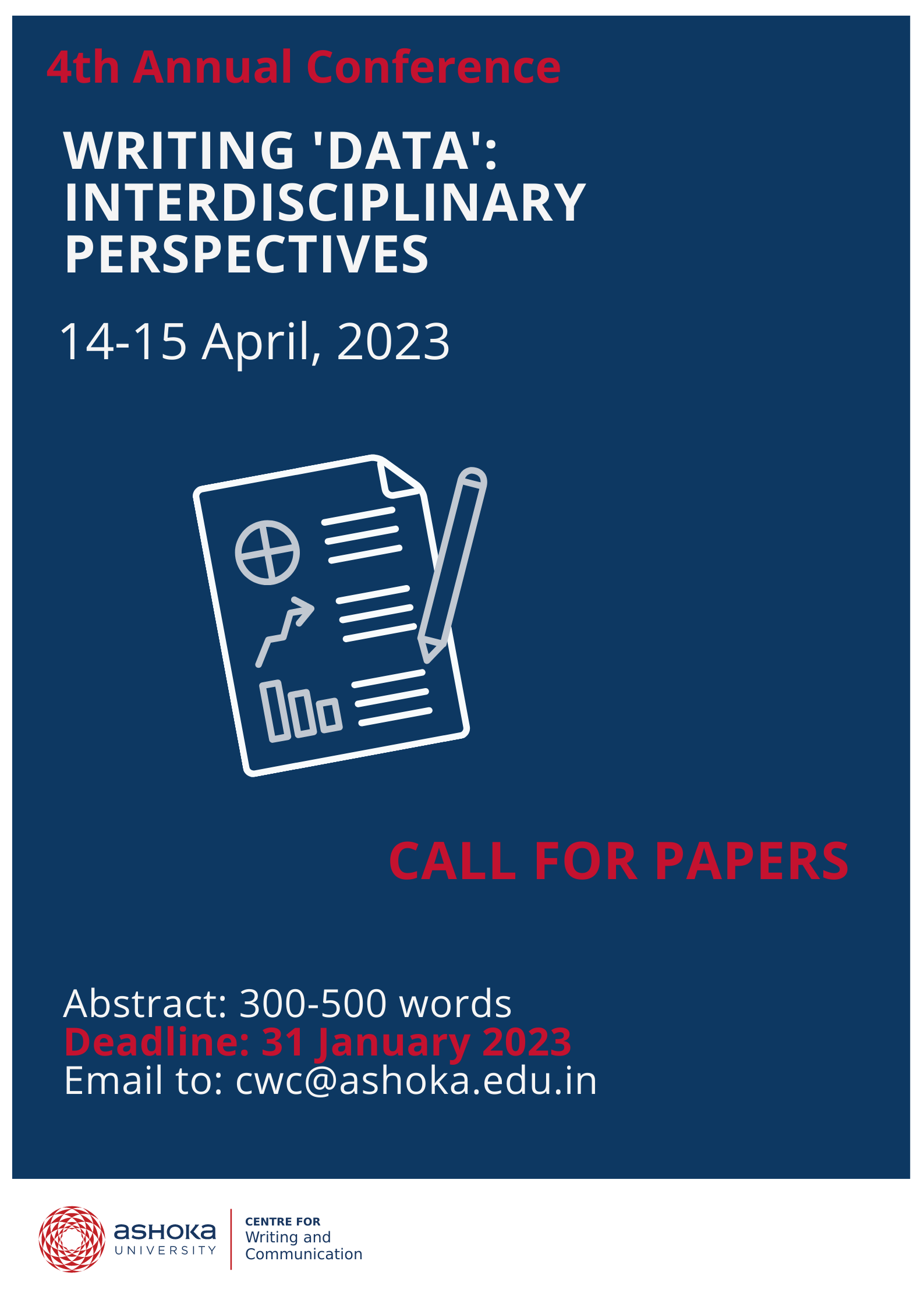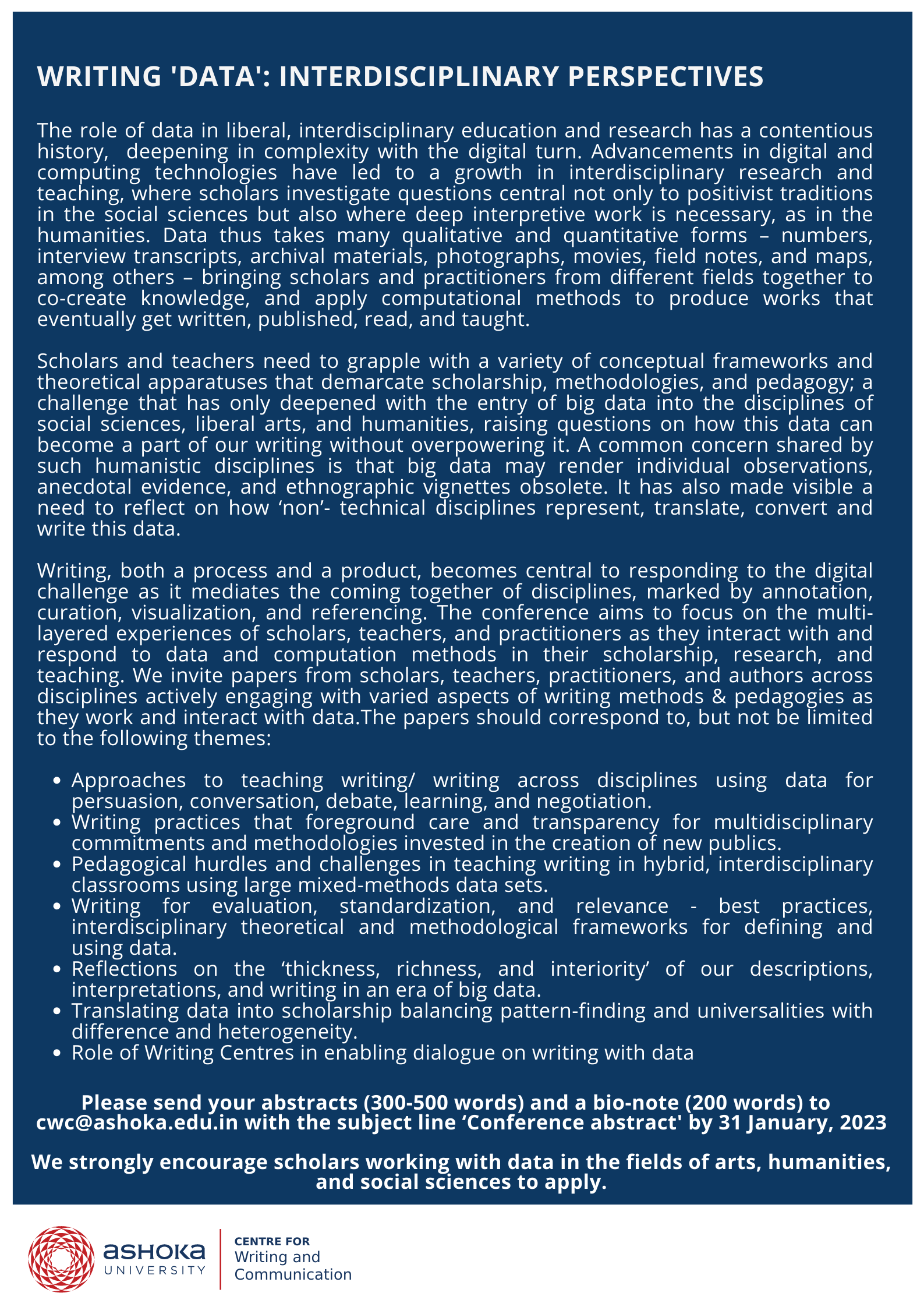




Each summer the CWC offers Summer School writing courses on research, academic and creative writing. They are paid programs and are open to participants outside Ashoka University.
This year the CWC hosted four summer schools on: Research Writing in the Humanities and Social Sciences, Academic Writing in the Sciences, Introduction to Editing and Proofreading, and Academic Publishing.
Combining both academic and creative themes and topics, these workshops are held with the objective of imparting practical skills and tenets of critical thinking that could be used by the participants in achieving their writing goals.
CWC Summer School on Research Writing in the Humanities and Social Sciences (June 26-30, 2023)
The Summer School helped participants develop a portion of writing along with equipping them with tools and techniques useful for research writing in academic and professional settings. Sessions will cover original contribution, framing research questions, literature review, research ethics, research methods, and components of a research paper and thesis.
A key feature of the school is the use and applicability of ethnographic research methods such as interviews, observations, field notes, and thick descriptions across varied research settings.
CWC Summer School on Academic Writing in the Sciences (June 26-27, 2023)
The workshop helped participants understand academic formats and styles of writing. It focussed on the basic elements of academic writing in the sciences and will discuss topics such as finding a research story and the structure of an academic paper, writing abstracts, use of language, self-editing tips, referencing, and citations.
CWC Summer School on Introduction to Editing and Proofreading (June 25, 2023)
The Summer School introduced participants to the practice of editing and proofreading. The session will address the difference between editing and proofreading, kinds of errors, levels of editing, and proofreaders’ marks including abbreviations and symbols.
The workshop was intended for anyone interested in editing and proofreading. The workshop was not purely academic in its scope, and included professional editing for publishing industry, content writing etc.
CWC Summer School on Academic Publishing (July 3-4, 2023)
This two-day Summer School introduced the participants to how to get started with publishing in various formats within academia: including research articles, books, reviews and monographs. It involved familiarizing the participants with every aspect of the publishing process: starting from the nitty gritty of shortlisting/ selecting a journal/publisher and submission, corresponding with editors and proofreaders, to various stages of peer-reviewing, revisions, proofreading, and post-publication priorities.
The workshop was designed to cater to an audience at various stages of their career in academia.















